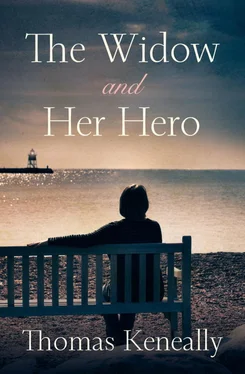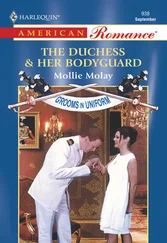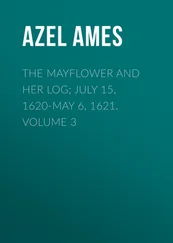After a silence, I thought Leo had gone to sleep but suddenly he said, He was a bloody good fisherman too, you know. And then, It would have been an awful death. Locked in the hold. It would have been hot, about 120 degrees, and it would have been foul and cramped. And then all at once the concussion, and water flooding in.
I could hear a little stutter of tears from him, merely a stutter, the habit of easy tears had been suppressed since his wild Solomon Islands childhood.
I said, You don’t have to think about that. Most death is hard. He wouldn’t want you to dwell on that.
Leo said, But I have to.
The flat was unheated, and for the first time I felt the malice of the cold of that southern city in winter.
Only two weeks later, Leo and Rufus left by train for Western Australia. It was another dismal night – we had had a last supper at the flat and went across to Swanston Street in a taxi. Rufus had a lot of business to attend to, supervising the loading of gear into the goods vans at the back of the passenger train. I met little Jockey Rubinsky, the young man of many languages who was too awed by the occasion to say anything meaningful to me. I was astonished to meet my cousin Mel Duckworth, the one who had brought Leo home to Braidwood in the first place, amongst the men boarding. Leo had not mentioned his possible membership of the Memerang group, and I thought until then he had a comfortable training job in Queensland. I’m just in support, said Mel. I’m like the lighting man on a student production. He had none of his New South Wales family and no girlfriend to see him off, and he gave an impression of being a little more lost than some of the others.
Leo took me aside. I’ll be back for Christmas. It’s going to be wonderful. I agreed with him. I’m not making empty promises, he said. The weather conditions mean we’ve got to be back well before Christmas anyhow. That’s between you and me.
I’m pleased to hear that piece of information, I told him.
Look, he said, you’re allowed to worry a bit. Just a bit.
I remember saying – wittily, I thought, for a woman doing her best – All right. I’ll indulge that luxury.
And listen, he said further, you don’t have to worry about other things. I believe there’s a searchlight battery of women at our training ground. You don’t have to worry about any of that. You’re the woman. There isn’t any other.
He put his lips to my ear. As for Rufus, he said through crushed lips, I can’t give any guarantees.
I’m not worried about women. I’m worried about your father.
I meant the influence his father’s death might have on him.
He kissed me. I’m not Hamlet Prince of Denmark, he told me. Don’t fret about that.
For some reason, on the cold station, the assurance was a comfort. Doucette turned up, with bright eyes utterly lacking in doubt or the madness I’d seen at the beach house. He was compact, full of a burning energy. Kissing my hand, he assured me he would look after his young friend Dig, and that I was to live blithely until Leo’s return. In the coming months I would remember and cling to Doucette’s air of certainty, and I would not tell Dotty about it for fear she would diffuse it with another story of the Boss’s Singapore berserkness.
The train was delayed and delayed, and it got to the point where everyone wanted it to be gone, and to have done. We had said every possible version of goodbye and exchanged every consoling promise, and invested ourselves into too many farewells, so that by the time the whistle went there was a sense of staleness in the air. At that second, a revived, mad Rufus did a lanky somersault on the platform and delivered himself upright into the doorway of the train. A small group of soldiers and sailors further along the carriage whistled and cheered him, and his smile went crooked and toothy beneath his eye-glass.
Goodbye, goodbye. Dotty and I and other girlfriends and wives ran along the platform as the train gathered speed, until the barrier at the end stopped us.
I know from Tom Lydon’s book The Sea Otters most of what happened in the training of the group for Memerang on Australia’s west coast. Rufus and the Boss instituted a severe regime at the base near Fremantle, on an island connected to the mainland by a spit of sand, Garden Island. The camp was primitive and tented, but the British submarine flotilla was nearby. Here was stationed a mine-laying submarine named Orca . It had been assigned the job of taking Doucette’s party to a well-wooded island off Singapore where a pick-up base could be established. Then it was meant to convey them further throughout the region till they found a junk that suited them for their attack on the port of Singapore.
The winter nights were severe, and Leo and the others spent many of them in folboats at sea, between Fremantle and Rottnest Island, named by Dutchmen making for Indonesia. Those men who came down with exhaustion were thereby eliminated by Rufus. Dig – Leo – passed every test of course. Jockey similarly. Old hands. The news came that the submersibles, the Silver Bullets, had arrived in Melbourne by ship and were being flown across. For many of the young soldiers and sailors, they would be the ultimate test for membership of the raiding party. They arrived in specially built canisters designed by their inventor, Major Frampton. By this time, their English instructor, one Lieutenant Lower, had also arrived, with Major Frampton. After the first Silver Bullet was uncanistered and displayed to the men, there was enthusiasm and some secret anxiety. Lower warned them that the vehicle proceeded well on the surface, travelling on its batteries at more than 4 knots, but it was harder to handle in the mode in which the operator’s head was just above the surface and the Bullet below, and it also took some skill if the operator drove it down below the surface altogether. The mask had to be breathed into in a particular way. Otherwise carbon dioxide would build up and kill the breather. If any of them got disoriented or otherwise panicked and abandoned the Silver Bullets, they would be court-martialled, since the vehicles were too precious to be let sink. Make sure the submersibles come to the surface! said Lower, a calm, devout man, as it turned out, an Anglo-Catholic. You are free to remain below and drown, he instructed them.
In that rough proving ground off Western Australia, disoriented men drove the Silver Bullets into the silt and came gasping up through murky water to the surface. How I wish one of them had been Leo! But solidarity with the Boss sustained him – even when he found, as he experimented on survival in opaque, churned water, testing the vessel’s every gear, that he could get it to rise only by driving it backwards to the surface.
Doucette decided that Major Eddie Frampton, the engineer creator of the machines, must be their conducting officer, their representative on the submarine, the man who would arrange their delivery and pick-up. Frampton began work with the captain of the submarine Orca , a young officer rather strung out by the long war. When he found that Frampton’s SB containers were incorrectly dimensioned to easily fit his mine tubes in the aft of the Orca , and that when they were jettisoned they fouled against the roof of the compartment, he became very petulant and seemed to have decided that this is what happened once you got into the business of transporting raiding parties.
A lost commando from the abandoned great Natuna plan also turned up at Garden Island. He was an English officer named Filmer, a member of an élite regiment, the Green Howards. Though a professional officer, a type usually suspect to Leo (apart from Doucette, of course), everyone seemed to like Filmer. He had the status of having been an actor in great events – he was one of the commandos who went ashore by canoe during the night preceding D-Day to make gaps in the wire of the coastal defences. How could you leave a man like that out, especially if you were Doucette? Even though his arrival in Australia was due to absurd accidents and mixed signals between SOE and IRD, he became one of the party.
Читать дальше












